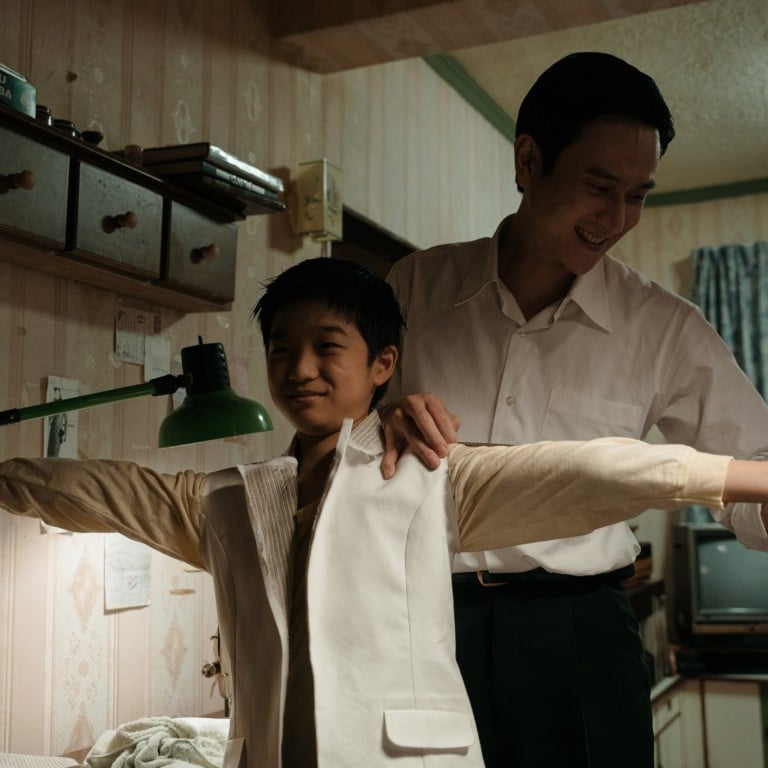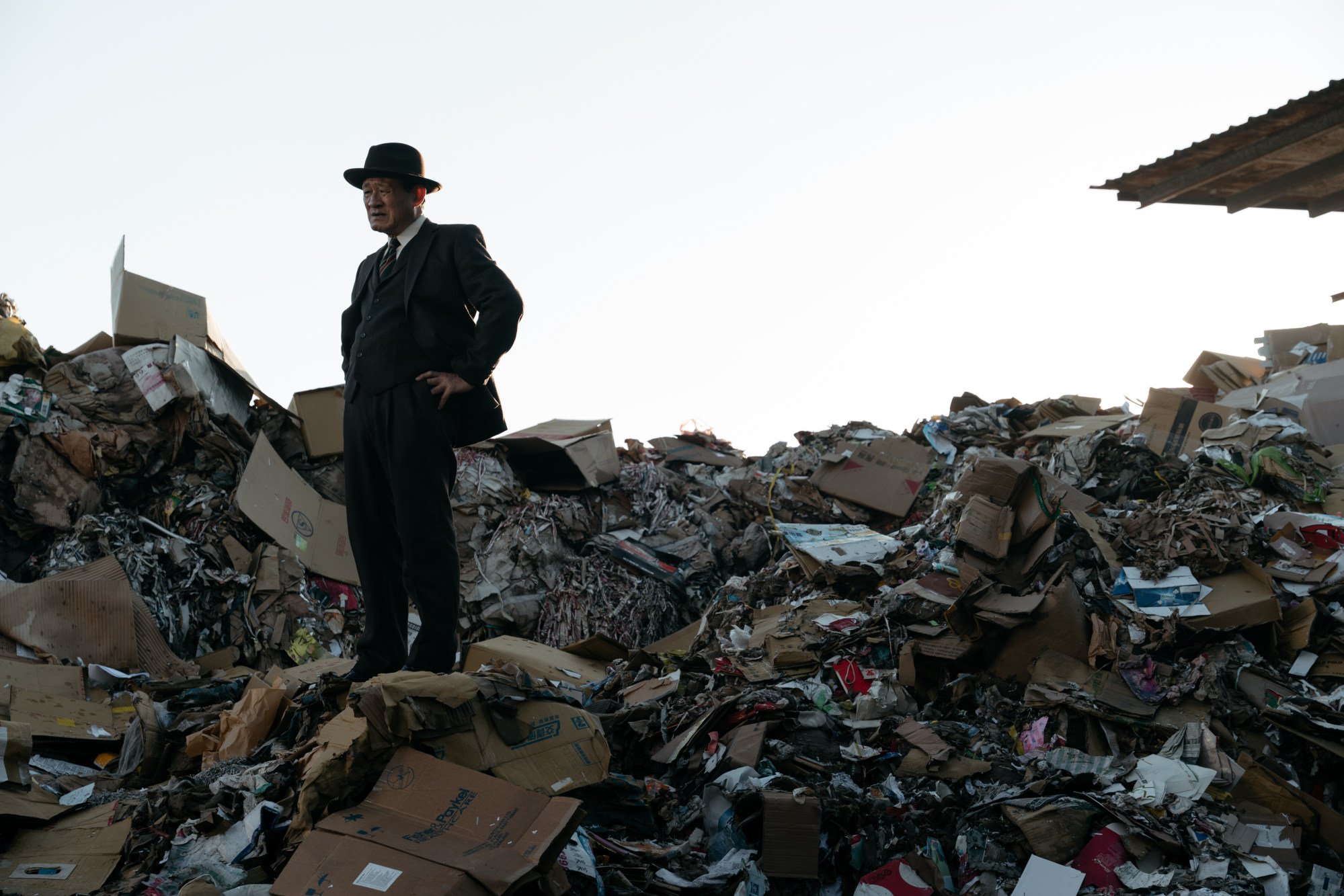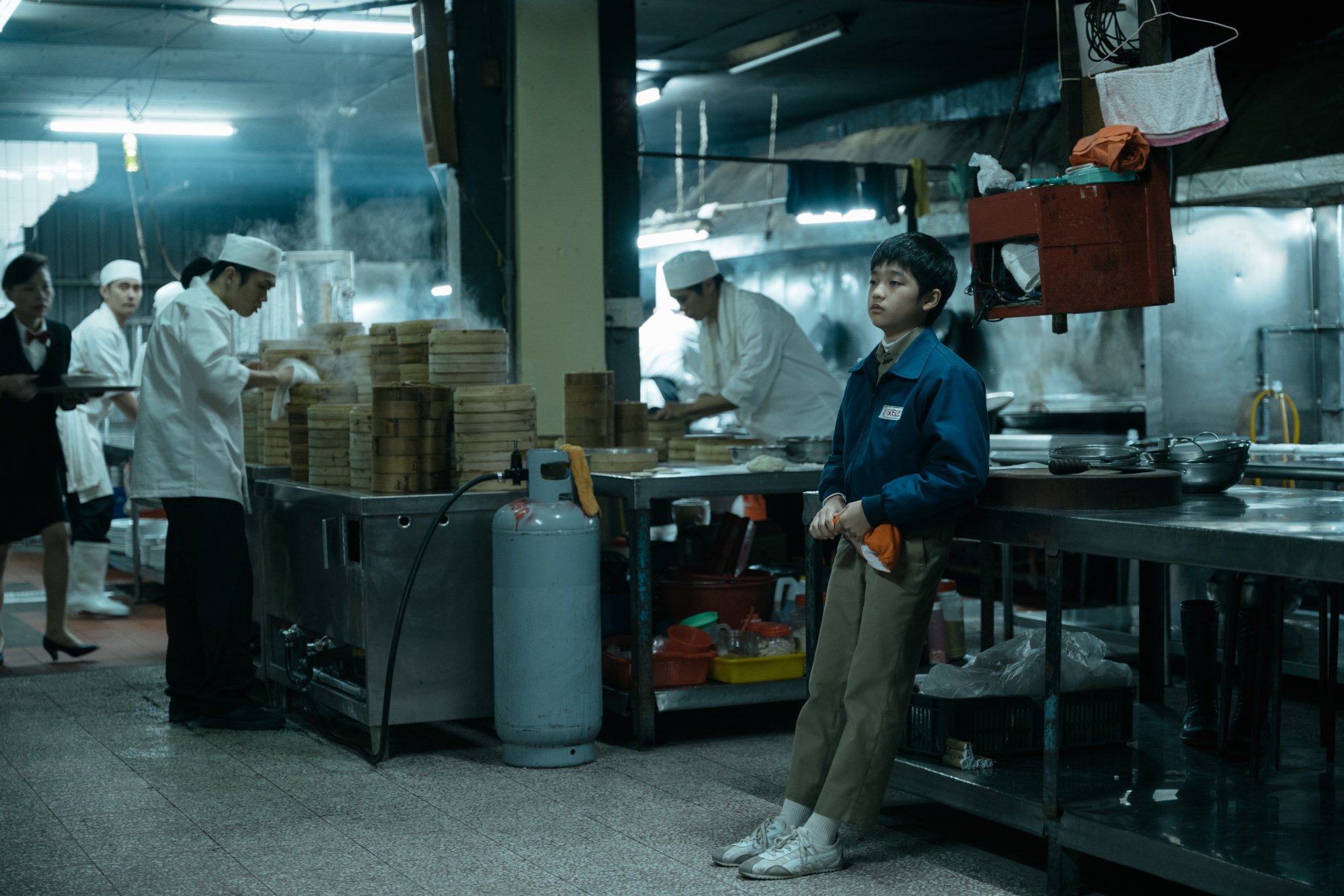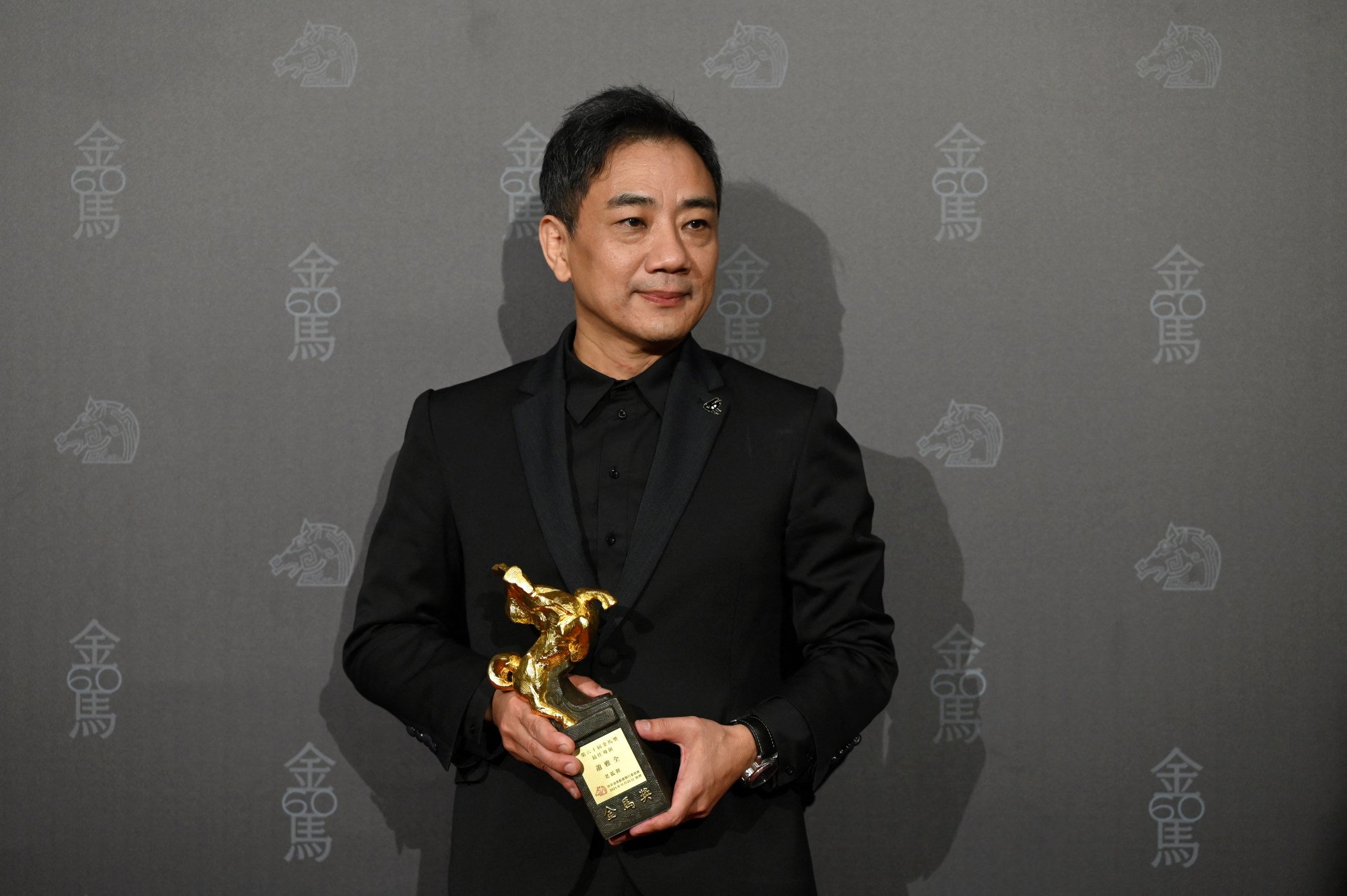
The message of Old Fox, movie about social change in Taiwan after martial law, according to director Hsiao Ya-chuan
- Set in Taiwan after the end of martial law, Old Fox tells the story of a boy living in poverty with his waiter father and their hopes of improving their lot
- Director Hsiao Ya-chuan says he drew on his own family’s debate about whether to put themselves or others first, a theme he hopes will resonate widely today
Let’s set the scene: the year is 1987, and the president of Taiwan, Chiang Ching-kuo, has just lifted the martial law after 38 years.
As Taiwan begins its path to democracy, it also enters a period of rapid economic development and immense uncertainty, with clashes between the different classes in society and a growing wealth gap becoming more evident.
This era serves as the backdrop for Old Fox, the latest film from Taiwanese director Hsiao Ya-chuan and the winner of four prizes at the 60th Golden Horse Awards in 2023, including best director.
The film tells the story of an 11-year-old boy, Liao Jie (Bai Run-yin), and his 38-year-old widowed father, Liao Tai-lai (Liu Kuan-ting), who works as a waiter and lives in poverty.
Together they dream of buying their own place to live, but just as their wish seems within reach, house prices go up.
Their landlord, Xie (Akio Chen) – nicknamed “Old Fox” for his ruthlessness and cunning – sees in Liao Jie’s frustration and desperation something of his past self, and takes a liking to the boy.
He offers advice on how to stop feeling sympathy and take advantage of inequality, while the 11-year-old begs him to sell a place to his father.
Thus begins a clash of morals and principles – between empathy and apathy, selflessness and greed – with Liao Jie struggling to determine on which side he should stand.
For Hsiao, Old Fox is a lesson of sorts written for his two children.

“I really wanted to show my kids my view of the world,” the director says in an interview with the Post at the recent Hong Kong International Film Festival.
“In the past, my parents used their own method to introduce the world to me, but the world is changing. What they taught me before, I can’t directly tell my kids to do the same thing. I have to develop a new method.”
Indeed, the film thrives on tension and ambiguity, and the lesson it offers is not clear cut.
I felt like you had to be honest, work hard and save money. But 30 years later – today – this thinking might not be right
Back in the 1980s, Hsiao says, everyone in Taiwan was troubled by discussions about money and tackling the change of values caused by the economic boom.
“Aside from a lot of disadvantaged groups taking to the streets to protest, a lot of economic and investment regulations changed. It was also during that time that the stock market became more developed,” he says.
“Before, if you worked harder than me, you’d probably have more money than me, because your wealth and labour were generally proportional.
“But after 1987, it all changed, because you could get really rich, not from hard work but because of stocks or information about what you should invest in.
“If you didn’t have either, it was really hard to become a rich person even if you worked hard. Wealth became unfair, and the wealth gap got wider.
“At the time, Taiwan wasn’t prepared to face these changes, so a lot of unusual things happened, and people didn’t know how to face these contradictions.”

Hsiao was a university student in his early 20s, and recalls having lengthy, impassioned discussions about stocks and money with his family.
“My family was not rich. We were actually quite poor, and we came across a lot of these issues – should we buy stocks from other people? But we didn’t have money, so if we wanted to buy stocks, we would have to sell our house.”
He recalls that his mother was particularly adamant about not selling the family home. “She thought, ‘How could we ever sell our house?’ It was like gambling. If we didn’t have money, we wouldn’t have a place to live either.
“That really left an impression on me.
The 10 best films of Hou Hsiao-hsien as the Taiwanese master retires
“Ultimately, we didn’t jump on the wealth train. We didn’t become rich, and because of that, we actually became poorer, because everyone else became rich.”
Back then, Hsiao’s family had opted to follow in the footsteps of his mother, who, with her honesty and selflessness, served as the inspiration for Liao Tai-lai.
“My mom would teach us to consider others, put them first and not think about ourselves,” he says. “Thirty years ago, this wasn’t considered wrong – everyone was like this.
“I would put you first, and you would put me first, so to think that way at that time was the correct way of thinking.

“I was quite similar to my mother. At the time, I didn’t like stocks. I felt like it was gambling. I felt like you had to be honest, work hard and save money.
“But 30 years later – today – this thinking might not be right. If I always put you first, and don’t protect myself, it might not work in today’s society,” Hsiao says.
Although Old Fox may be set in the past, its treatment of everyday issues – class, wealth disparity, social relationships – makes it feel relevant and relatable.
Of course, it helps that Liao Jie is played by the beloved child actor Bai Run-yin, who Hsiao holds in high regard.
“We all say he’s a child prodigy, because from when he was five or six, he was exceptional in all the films he was in,” Hsiao says.

Hsiao decided early on to cast Liu Kuan-ting, with whom he had worked before on a short film, as Liao Tai-lai; the director later cast Akio Chen, mostly a television actor, as the Old Fox after watching him in several student films.
In addition to Hsiao winning best director at the Golden Horse Awards, Chen also won best supporting actor for his role.
“I think every director hopes to get an actor award, because actor awards are a great encouragement,” Hsiao says. “It shows that the director dealt with the casting and the actor well – of course, it’s based on the actor’s own work, but you also get credit for guiding the actor to express the character.”

Looking ahead, the director hopes that Old Fox can gain an audience outside Taiwan, and that people in Hong Kong and beyond will be compelled by its subject matter.
“I don’t want this to just be a Taiwanese film,” Hsiao says. “When I was showing it at the Tokyo International Film Festival, I was also worried about this. Would Japanese audiences feel anything for this film?
“After it showed, it felt like the response was quite passionate, so I let out a breath – just because it was a Taiwanese story, it didn’t mean that it couldn’t resonate with audiences. I hope it’s the same with Hong Kong – that it resonates with audiences.”

